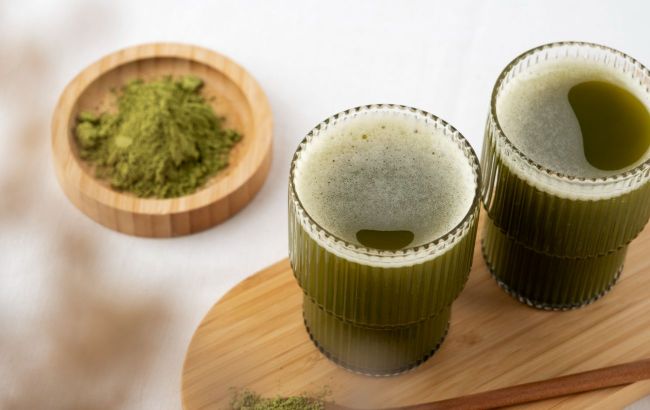Green tea or matcha: Which one boosts energy better
 Which drink provides better energy, matcha or green tea (photo: Freepik)
Which drink provides better energy, matcha or green tea (photo: Freepik)
Matcha and green tea contain caffeine and beneficial antioxidants. However, the difference in preparation determines which drink supports energy and concentration longer throughout the day, reports Verywell Health.
What is the difference between matcha and green tea
Matcha is a finely ground green tea mixed with hot water. Green tea, on the other hand, comes from the same plant, but its leaves are steeped in hot water and then discarded.
Matcha contains more caffeine and antioxidants than green tea and may have stronger health benefits.
What provides more energy
The journal Molecules notes that matcha contains more caffeine than green tea:
- Matcha: 44.4 mg/g
- Green tea: 24.67 mg/g
Matcha can provide a stronger boost of energy because it contains more caffeine. In both teas, the level of caffeine depends on factors such as method of preparation, leaf quality, and the time the tea was gathered.
Both matcha and green tea contain L-theanine, caffeine, and antioxidants. This combination of components can support alertness, steady concentration, memory, attention, and overall cognitive health.
Matcha has a higher concentration of theanine and catechins, which increases its potential to improve brain function.
What is healthier for heart health
The US National Center for Complementary and Integrative Health reports that matcha and green tea are connected with lowering cholesterol levels and the risk of ischemic heart disease.
Many of the benefits of matcha and green tea are from epigallocatechin gallate, a powerful antioxidant found in larger amounts in matcha.
Matcha has a higher content of EGCG, which is known for its cardiovascular benefits.
Daily intake
Matcha and green tea are generally safe to consume and are unlikely to cause side effects when consumed in moderation.
Drinking too much caffeine from matcha or green tea can lead to side effects such as anxiety, nervousness, rapid heartbeat, high blood pressure, insomnia, nausea, or sleep disturbances.
As a general recommendation, try to limit caffeine intake to 400 mg per day. It is approximately two to three 350 ml cups of coffee.
This material is for informational purposes only and should not be used for medical diagnosis or self-treatment. Our goal is to provide readers with accurate information about symptoms, causes, and methods of detecting diseases. RBС-Ukraine is not responsible for any diagnoses that readers may make based on materials from the resource. We do not recommend self-treatment and advise consulting a doctor in case of any health concerns.

